#freewill
Explore tagged Tumblr posts
Text
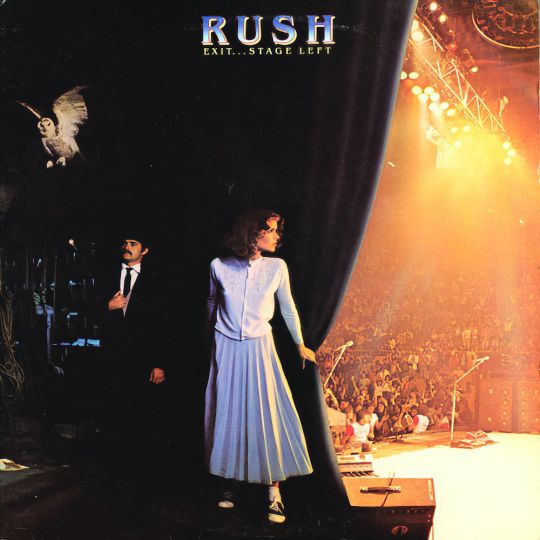
#rush#freewill#exit stage left#neil peart#geddy lee#alex lifeson#free will#you can choose from phantom fears and kindness that can kill
82 notes
·
View notes
Text
Freewill in Hazbin
okay, real question here. Does anyone understand the concept of freewill in Hazbin Hotel???
Okay, I think it's safe to assume that Adam and Lilith have freewill considering Lilith could reject Adam, which is a choice she made herself. But then Eve doesn't have the ability to choose???
And why was the way for Eve to get freewill through Lucifer was through eating the forbidden fruit of knowledge of good and evil, which is an odd way because it implies that freewill in Eve case is that she doesn't have the knowledge she can choice then that would implied Lucifer didn't gave her freewill, she had it all-along he only gave her the awareness that she can choose.
Biblically, Adam and Eve were given freewill by God Himself as love cannot be forced it have to be a choice (which they chose to disobey...). Though in Hazbin Hotel the angels seems to be the one who made the humans and earth, which is honestly a whole can of worm, but okay sure we'll work with that, so we're just gonna assume the angels is just kind of given authority to create based of God's design (one of them being freewill). Adam and Lilith right out of the bat had freewill but then after Lilith rejection Eve was created without freewill or maybe without the awareness of choice so then Lucifer comes in and see that is wrong because again being able to choose is very important. But then use the fruit of knowledge of good and evil which is already identified to be a sin if they ever choose it, Lucifer may claim that he only wanted humanity to continue doing good with that freewill (which is biblically true, the wanting of humanity to use freewill for good).
However, maybe part of him did it to get praise or even worship because maybe he's so tired of being seen as the one who's imposing heaven's will, which can play more accurately with his role being the king/sin of pride I guess? Which, uh, if Eve just lack the awareness of choice Lucifer's action might come as him playing as god and doing it in a wrong way (that literally introduced evil) which I think could be counted as blasphemy 😰
So, I guess with this theory does make the reason Lucifer fall make more sense because, it came from pride (or wanting pride), even if he was hurt from all of the shamed he got from edging close to going against heaven's will 😭💔, so I guess it's kind of like a yes he was being/trying to act against heaven so yes he's kind of wrong but he doesn't change and continue to do things that eventually lead up to the apple as a last resort to trying to get praised or something to feel proud of?? Which I supposed is a complicated pride
But you know, even if this makes him more wrong/bad, it at least could make things more sad, like how Lucifer in the show barely shows a lot of pride but shown to be more shameful and regretful which kind of create a
"what's the point of feeling proud of myself again when the last time, when I was sure something great would happen, I've ended up cursing humanity, giving them the illusion of autonomy while actually making them more bound to sin."
"claiming it for good of when the fruit I've given resulted in death."
being told what he does is dangerous over and over again, but never listened to their warnings, but in the end they're correct.
Instead of freedom being granted, it's stolen by sin, binding humanity into sin.
It wasn't freedom Lucifer gave, he gave them chains while telling them it was wings.
But anyway these are just thoughts, I know Hazbin isn't meant be accurate but shushhh.
#hazbin hotel#hazbin hotel lucifer#hazbin lucifer#lucifer hazbin hotel#lucifer magne#lucifer morningstar#Angst#Theory#hazbin theory#Freewill#Sins#Sin#Lore#Ophriel yapping sension#Yes I read the bible lollol#Double check it infact#Especially with the bound to sin part#Y'all I swear Luci is my favorite in Hazbin I just needed a possible explanation#We love complex character though#i don't know how to tag this
40 notes
·
View notes
Text





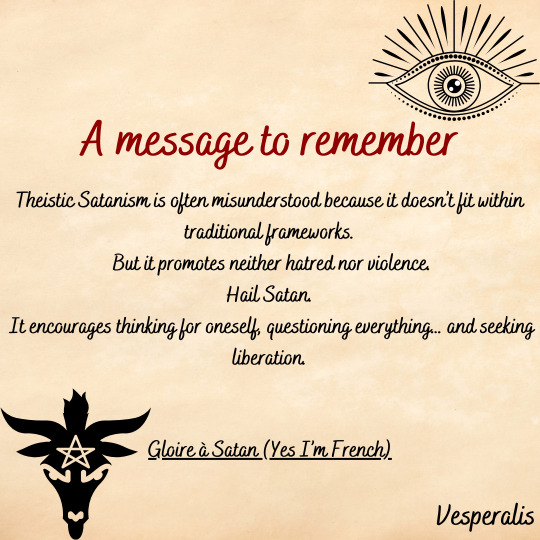
🌹 Theistic Satanism — Part 3
✨ Breaking Prejudices
There are many preconceived notions about theistic Satanism... and they’re often wrong. In this third post, I tackle the most common — and sometimes dangerous — clichés attached to this spirituality.
❌ No, Satanists do not sacrifice animals. ❌ No, it's not just about being “shocking.” ❌ No, it’s not a cult. ❌ And no, Satan does not necessarily embody evil.
🕯️ Theistic Satanism is a path of freedom, clarity, and responsibility. But to truly understand it, we must first unravel the fears inherited from dominant religious narratives.
🖤 Whether you practice, are questioning, or just discovering — you are free here.
#theisticsatanism#satanismetheiste#satanism#satanisme#satan#spiritualfreedom#alternativespirituality#freespirituality#personalbelief#demonology#deconstruction#freewill#introspection#selfknowledge#criticalthinking#antidogma#symbolism#occultism#esotericism#mythsandreligions#prejudices#religiousdeconstruction#Satan#Lucifer#666#satanist
33 notes
·
View notes
Text
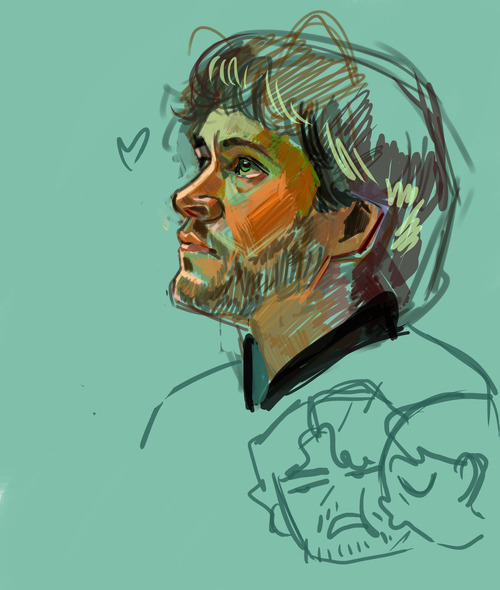


doodles✨
24 notes
·
View notes
Text




the FREE WILL one :) https://adafruit.com/slackforce
14 notes
·
View notes
Text
Freewill - Rush
youtube
13 notes
·
View notes
Text
Innerstanding

Spirit told me to visit the waters thats a place to free my mind and understand my deep thoughts. It was a cool and windy evening, did a lil writing, planning, then sat the books aside and relaxed my head back and let spirit talk to me from within. I felt at ease and relaxed. Moments later i took a walk down the trail and admired and appreciated natures scenery. My active self always have to work out or use my mars energy! So i did 101 push-ups, then some pull-ups from different angles. My blood was flowing and body was warm. It was a barrier of rocks set up on shore to walk along to get close to the deep waters. Walking along the path i saw a man fishing. It looked like he been out there for awhile, but no fish caught. Made a quick convo, asked him what type of fish is out here, and did you catch anything. So i proceeded to walk the rough and rocky path, had to be agile and coordinated, since the rocks were not exactly aligned. As i got futher and futher from the shore, the wind picked up, waves gotten more intense. Some areas the waves splashed along the path, so made the path more treacherous. My logical side said naw lets just turn back before the weather gets to much and water gets more dangerous, my more dare devil, rebel and spirit side said if you dont get on and move forward and take risk! So i get to an area that i felt was fine and cool, i just stood there and watched the waves crash against the rock barriers, and the clouds move so smoothly and serene across the light blue sky. My eyes were dilating so much, from all i was seeing at once. Seem like everything was happening so fast and precisely. Eventually i sat down, facing the open waters, just fascinated about the elements and how strong they are. My brain just started to process ideas and concepts. As i looked at the water moving move and splash against the rocks, i then looked at the rocks, hmmmmm water is based on EMOTIONS and FEELINGS the rocks are based on PRAGMATIC, PRACTICAL and LOGICAL. So then I was like the rocks are stopping all the waters emotions from going over board or getting carried away. Then i was like well what causes the water EMOTIONS to go in different directions, hmmmmm AIR, so air deals with LOGIC as well, so the air was directing the EMOTIONS or water the way it wants to go. which can cause chaos because its not being delt with just being pushed away and directed to other areas that may not have barriers or having 2 many waves or emotions clash. So i was like where is the fire! My brain was just thinking and searching for a answer in the middle of the waters, came to me. Im the fire, my thoughts, ideas, faith, and energy to ignite the whole reality. We are from the ether realm so thats fire where faith lays. Fire gets things started and make them seen from within and can get a flash look at what can be before it materially sets in from a earth element. I just stared at the weather, it started to get a lil more windy, but i was comfortable where i was. I saw a bird flying in the sky, kinda looked like he was floating and just hovering, since the wind was so strong. I watched the bird float and fly over the waters looking for fish or anything that was edible in the wavy waters. Watching this bird fly in these powerful winds, while still searching for food, motived me or just inspired me sooo much, this bird out here still trying get it in or feed its belly or feed its family through this tough weather. I seen other birds sitting on a rock or somewhere sterdy or protected until the storm passed. Not this bird he was cut from a different clothe, he needed it by any means necessary. Then i zoned off for a second, i went within and stared at the waters, skies and then controlled the environment around me. Watched the waters get more and more stronger, waves splashed more harder, the winds increased, then it started to rain lightly. I felt my energy get stronger as i created what i demanded to happened.
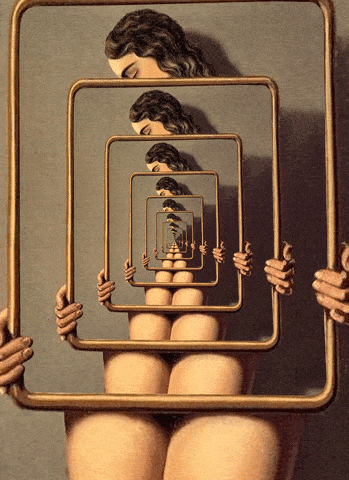
Moments later i stood up, felt the elements all combine to create this dynamic experience. Spirit then told me to head back, i could feel the force of the wind! Power from the rocks as they vibrate from each hit from the wild raging waves, and my firey soul as it intertwined all them together. I walked back across the rocks i came from, even tho the walk back wasn't the same due to the change of weather. Had to jump over some areas, climb with hands and jump to other rocks, when the ocean is in rage it makes it presence known. Did I create all that rage or emotional current? Was the ocean just responding back to what i projected out towards it, same goes for the wind! I was protected from these rocks or borders. Which could represent my emotional strength and perseverance with emotional baggage! If one rock was damaged or not strong enough and fell into sea, then what. It would create a domino effect, which would let my emotions pour over, and take control of my stability, mental, and cause my physical body to behave eruptly. I made it back to the solid ground, it was raining hard, i was soaked but it acually felt good. Since i was a part of its doing i guess. Once i got in the car, i laid my head back and let spirit talk to me more. Why do we run from the rain? Why no one likes to get wet? Or stand the rain? Could it be that we dont want to be cleansed, purified from our own wrong doings or wash away our fake personas. What if when it rains its a time to stand in it and let it cleanse u from all your past doings and you can be fresh and start a new cylce as the moon does. When you bath its for the cleaning or hygiene and germs. My brain just be everywhere, you dont understand your powers until you meet the real elements face to face. They awaken all your chakras, its a time when your physical aspect doesnt need to be involved to understand its powers. You can feel the water with yours emotions! Smell the wind with your intuition! See whats to come with precognition Know where you came from by observing your surroundings and your memory. When you realize its so much more than you and in you when you get time to talk to your other side of you that floats in the ether realm so patiently for your attention. So much attention gets took and gave to your brain, mind and conscious that you forget that you have energy, talents and skills that sit in the dark waiting to get explored and used. Just like water you keep memory, and deep rooted issues that need attended to. Same as fire that can light up a dark room, your soul is your torch through this realm to escape to the gateways of divine consciousness. As in air, it blows unpredictably in the ways it wants to, at times it can sit still and peaceful as a owl watching its prey. Your mind can pick up on any and everything when its open to all ideas, thoughts, different perspectives and curiosities. Like a solid deep rooted tree, that holds all its fruits and perseveres each and everything. Gains more and more nutrients from its strong foundation which helps its existence with knowledge, experience, perseverance and a understanding of its purpose.

#freewill#passion#barriers#water#wind#fire#earth#force#powerful#elements#deep#walk#rain#weather#soul#spirit#ether#realm#within#innerstanding#understand#guide#heart#protection#life force#bird#survival#change#dark side#nature
9 notes
·
View notes
Text
youtube
3 notes
·
View notes
Text






guys look at them they’re literally canon😈☝️☝️
#balam shichirou#welcome to demon school iruma kun#wtdsik#oc#oc x canon#akikokuroi#oc x cc#wtdsik oc#akikoxbalam#shirokiko#bakiko#akhiro#hellyeah#freewill#ocxcanoniscool#Oc x canon ship
6 notes
·
View notes
Text

#raunch records#1989#1980s#judge#bold#speedway cafe#social distortion#verbal assault#shudder to think#freewill#underdog#dead silence#gorilla biscuits#agression#grim#tad#the word#uniform choice#reason to believe#verbal abuse#NOFX#life sentence#poison idea
9 notes
·
View notes
Photo
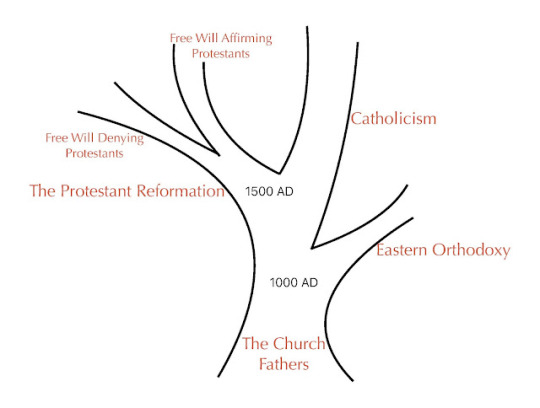
On Free Will and Predestination: Part 1, The Tree of Free Will
4 notes
·
View notes
Text
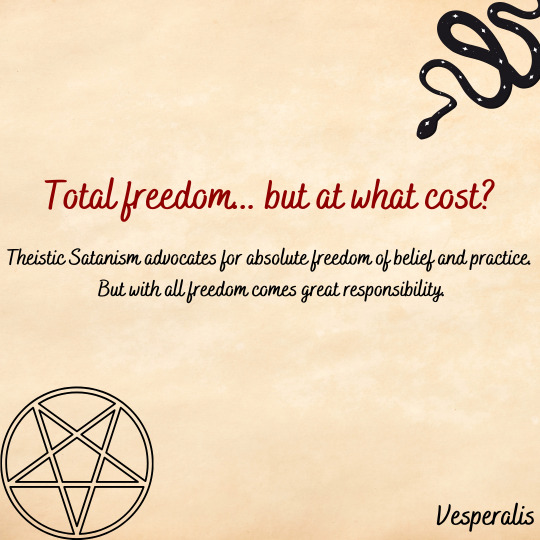




🕯️ Theistic Satanism – Part 4: Freedom & Vigilance
No dogmas. No imposed commandments. No master.
👉 Theistic Satanism is a path of total freedom. But freedom is not a game: it requires clarity, responsibility, and critical thinking.
Some deviations do exist. They’re not unique to Satanism—similar patterns can be found in Christian, Muslim, or New Age groups. The real danger lies in manipulation, abuse of power, and fanaticism.
🔥 True Satanism doesn’t enslave. It empowers. It invites you to think, question, and choose your own path.
#theisticsatanism#satanism#spiritualfreedom#freespirituality#criticalthinking#antidogma#personalpath#spiritualjourney#selfknowledge#luciferianpath#occultism#esotericism#symbolism#modernwitchcraft#initiation#personaldevelopment#mysticism#darkspirituality#alternativespirituality#demonology#individualspirituality#religiousdeconstruction#truthseeker#openyourmind#witchtok#esotericinsta#freewill#satan
18 notes
·
View notes
Text


You see, boys forget what their country means by just reading “the land of the free” in history books. Then they get to be men, they forget even more. JAMES STEWART in MR. SMITH GOES TO WASHINGTON (1939)



2 notes
·
View notes
Text
Today's episode of I Have Freewill:
I made a book press so I can start putting sprayed edges on my books and it's absolutely one of the most enjoyable decisions I've ever made, I'm having so much fun :)
#books#sprayed edges#diy#freewill#today we try new things#making joy#learning to enjoy being alive#take two favorite hobbies: now kiss#painting#book
2 notes
·
View notes
Text
Is Free Will an Illusion? A Day in the Life of Your Decisions.
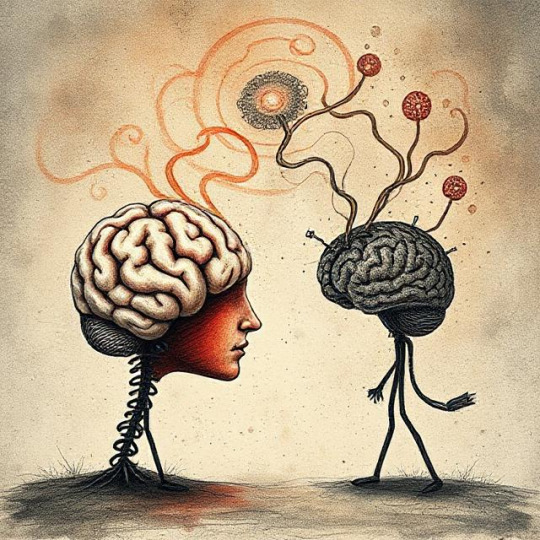
A Choice: Morning Snooze
Alarm goes off, you are still half asleep, and you stretch your right hand out to reach the little button marked "Snooze." Did you do that based on your decision, or did your brain respond on autopilot by now, conditioned by excessive sleep deprivation? Neuroscientists will argue that the brain made that call something like milliseconds before consciousness kicks in. So, was it you who actually decided, or did your brain go into action because the situation called for it?
The next in line is the choice of breakfast. You stand in front of your fridge, staring at it, and caught up in thought about the meal between eggs and cereals. You choose cereals. On what basis? Probably because you saw a commercial for it last night. Or probably because your body is craving some sugar after long fasting. Or keys to choices, even if unaccepted, could already be chosen on your behalf by previous experiences and biological programming.
Commute: Driving or Your Instincts?
It is very likely that you don’t think of every little thing: pressing the gas, switching lanes, stopping at a red light. For the most part, your brain relatively runs your commute by remote, with defenses lowered. After taking the same route every day, your body seems to just know where to go. Is that really free will, or rather is it just you executing pre-programmed behaviors, like a sophisticated biological GPS?
Let’s take it further: suddenly, you decide to take a different route. Aha! That was free will. But—wait!—was it? What if your brain already calculated that the other route would probably be preferred based on past experiences of being stuck by traffic patterns or subconscious stress levels? Maybe just “randomly” picking that route was a less random choice than it originally appeared.
Midday: The Illusion of Choices
As you come towards lunchtime, and you begin to browse a menu, so many options! You feel like you are in control-no doubt, you get to choose what to eat. Let's take this apart:
Your upbringing has influenced your preferences, your past meals, and what type of culture exposure you had as well as from whom you receive the meal.
Such cravings of your body are ruled by biological factors such as blood sugar levels and hormones.
Though there could be marketing influencing your decision-you may have seen a burger being advertised earlier and now you are leaning toward it, unknowingly.
Insofar as free will is a summing up of past experiences, biological needs, and external nudgings, how free truly are your choices?
Afternoon: Can You Will Yourself to Work Harder?
You sit at your desk, trying to concentrate. You tell yourself-I will be productive by my choice. But do you truly? Studies suggest our ability to focus is governed by neurotransmitters, brain structure, and even how little sleep we got last night. On some days, no matter how much we will ourselves to concentrate, our brains just can't comply.
Even decisions to move towards motivation are suspect: Did you choose to be motivated today, or were you happening to be on the right side of the dopamine and serotonin balance? If you had gotten less sleep or a different genetic predisposition, would you even be able to join work, have concentration, and work?
The Night: Interaction and Subconscious Scripts
You are with friends after work. Every interaction, every joke told, every opinion given- these are conscious choices, aren't they? Or do they come from experience, social conditioning, and subtle cues of body language developed over decades by other people?
Oh, you laughed at a friend's joke. Was that a conscious choice? Or was your brain lining up all possible social cues and producing the right answer? Deeper still-were you free to decide what kind of sense of humor you liked, or was it influenced by the environment you grew up in?
Night: Do You Decide to Overthink?
As you're lying in bed, you're having multiple thoughts racing through your mind. You'll play scenes from the day, analyze conversations, plan for tomorrow-even think about whether you made "the right" choices throughout the day.
But if each decision were merely an automatic response to the past chemistry of your brain, subconscious biases, and environmental triggers, was there ever a "right" decision? Or were you just along for the ride?
So, Is Free Will an Illusion?
Come on, who hasn't debated about that before? For centuries, this has been a subject of deliberation among philosophers. Neuroscientists are now saying that many decisions we make may occur before we become fully conscious of their existence. Determinists hold that everything we do is the set of dominoes set in motion by a preceding cause, so free will doesn't really exist at all. But far from being the correct opinion, there are some philosophers who believe that as long as one feels they have free will, their choices being tainted by biological and past effects is no sin.
So, what to take from this? Perhaps free will is an illusion. Perhaps we are only the sum of experiences, subconscious programming, and biological forces. But so what? If life were to illusion us into feeling we do have choices, maybe that's the punchline.
Come on, when your alarm rings tomorrow morning, is it or is it not a possibility you won't hit snooze?
#FreeWill#Philosophy#Determinism#Consciousness#Neuroscience#MindAndBrain#SelfAwareness#LifeChoices#IllusionOfFreeWill#ThoughtExperiment#PhilosophicalDebate#SocraticMethod#ExistentialQuestions#PhilosophyOfMind#BrainScience#DailyDecisions#Choice#SelfControl#CognitiveScience#PersonalChoice#MentalState#AutopilotMind
2 notes
·
View notes
Text
Kuron sakusei ni tsuite wa dodesu ka?
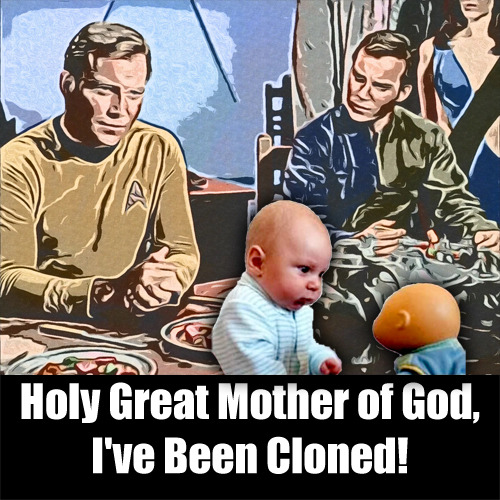
The concept of the human soul is deep, rooted in philosophy, religion, and spirituality. Its definition varies across different cultural and philosophical ideas. A textbook definition of the human soul might be considered as: “An immaterial, eternal, and indivisible essence that embodies the unique identity, consciousness, and spiritual nature of an individual human being. It is believed to transcend the physical body and is often associated with qualities such as morality, emotions, intellect, and the capacity for free will. In many religious and philosophical concepts, the soul is considered the core of human consciousness, the source, the locus of personal identity beyond the physical plain of death.” ~ChatGPT In this talk we will expand upon the human soul’s root in philosophy, religion, and spirituality. We are going to add physics, binary information systems, robotics, biomechanical, sociology, quantum mechanics, gravity and other technologies to this talk about the human soul. We will repeat ourselves often here. Be ready… 1) Is the human soul, a piece of quantifiable data?
In 1901, Duncan McDougall, a physician in Haverhill, Massachusetts attempted an experiment to determine whether the human soul has physical weight or not at the exact moment of death. The experiment was to use a very sensitive weight scale of the time period to weigh the body at the moment of death to test whether or not substantial mass leaves the body at the moment of death. The experiment did have results but could not be collaborated by other experiments, often the results were inconclusive, and the scientific community as a whole would later recognize McDougall’s experiments as unreliable. However, despite this, the experiment popularized the urban legend that the human soul weighs 21.3 grams. The question of whether the human soul can be measured or quantified gets into some pretty deep, critical thinking and problem solving thought experiments about what makes us, well, us… The soul is like the core of our identity, consciousness, and people have been talking about it since the first humans looked up at the sky and asked; “Each of us at some time in our lives, turns to someone - a father, a brother, a God... and asks...” “Why am I here? What was I meant to be?” “Is this all that I am? Is there nothing more?” ~Kirk/Spock talking about V’ger, “Star Trek: The Motion Picture” (1979).
Traditional religious ideas say the soul is beyond what science can measure. That the soul is beyond human comprehension. They see it as something divine, connected to God, and lasting forever. In more recent times, with all our technological growth since 1901, science tries to look at the soul in a more practical and scientific way. Religion says the human soul and God is beyond science and that is correct, “from a certain point of view.” ~Obi-Wan Kenobi, “Star Wars: A New Hope” (1977). Right now, that is true. Our complete knowledge of science, specifically physics, is extremely incomplete. We are trying to solve a problem with only a fraction of the data and science we need to tackle the problem. The amount of science-things we did not know in 1901 is daunting. We didn’t know back in 1901 what the structure and function of DNA was. We didn’t know about the existence and properties of subatomic particles such as electrons, protons, and neutrons yet. We didn’t have the theory of relativity proposed by Albert Einstein. Any concept of quantum mechanics and its implications for understanding the behavior of particles on a very small scale. No knowledge on the extent of the universe and the nature of galaxies beyond our own Milky Way or the role of bacteria and viruses in causing diseases. We didn’t have the causes and mechanisms of genetic inheritance or the full extent of Earth's geological history, including plate tectonics and continental drift. We were only in the infancy stages of the complexities of human psychology and the workings of the brain. The potential for space exploration and travel beyond Earth's atmosphere wasn’t even known as science-fiction yet. They were still calling these stories ‘fantasy.’ Flash-forward 123 years to 2024 and science learned all those things above that we did not have in 1901. Science uses tools like brain scans to understand how our brains work and how they relate to our thoughts and feelings. They think that maybe the soul is just the result of all the complicated processes happening in our brains. This might sound like they're taking away the magic from the idea of the soul, but it's more about trying to understand it in a new light. Some even wonder if we could create a kind of digital version of ourselves, keeping our memories and personalities alive in computers. So, while old beliefs say the soul is beyond measurement, new science is pushing us to rethink that. It's a big question that mixes religion, science, and our own deep thoughts about who or what we are. The human soul is a big puzzle that we keep trying to solve. It is part of what makes us human, always curious about the mysteries of our own existence.
2) Does the soul have mass? If so it ‘must’ obey the laws of physics in the form of the conservation of mass and energy, respectfully.
When we talk about whether the soul has weight, we're really asking if it behaves according to the laws that govern our physical reality, which is physics. The conservation of mass and energy says that you cannot just magically have “stuff” pop in or out of existence from nothing—it can only change shape or form. The conservation of mass and energy in its infancy was theorized as far back as 520 BCE by the Jain philosophy, a non-creationist philosophy based on the teachings of Mahavira, stated that the universe and its constituents such as matter cannot be destroyed or created. It was later expanded upon through expression dating back to Hero of Alexandria’s time. The law can be seen in the works of Joseph Black, Henry Cavendish, and Jean Rey. One of the first to outline the principle was Mikhail Lomonosov in 1756. He may have demonstrated it by experiments and had discussed the principle in 1748 through correspondence with Leonhard Euler. The conservation of mass and energy was later heavily defined in science when experiments later carried out by Antoine Lavoisier; who expressed his conclusion in 1773, and was popularized as the principle of conservation of mass and energy.
A friend of yours comes up to you with one of those giant cookies. Your friend cannot just make the cookie disappear or create a new one out of thin air. Instead, they can change the cookie into something else, like crumbs or energy when one eats it. The total amount of cookie-stuff (mass) and the energy it contains stays the same, even if it changes form. So, it's like saying you can't make something out of nothing, but you can transform what you have into different things. This is a universal law and everything of EVERYTHING physical applies to it except for a universal law that would combine gravity of the macro reality with that of the quantum one. Most of this statement is true. There is a slight misconception though. The principle of conservation of mass and energy does indeed assert that you cannot create or destroy matter or energy; instead, they can only change forms. However, the part about exceptions related to gravity and quantum mechanics is not entirely accurate. Conservation laws, including the conservation of mass and energy, are fundamental principles that apply universally to all physical processes, including those involving gravity and quantum mechanics. There is no exception to these conservation laws. While our understanding of gravity and quantum mechanics may lead to complexities in certain situations, the conservation of mass and energy still holds true as a fundamental principle governing the behavior of ALL Matter and Energy in the UNIVERSE.
When we talk about whether the soul has mass, it's important to think about what the soul really is? In relation to the law of conservation of mass and energy, the soul is energy, yes, but it is in a form our current understanding of physics cannot yet define. Under these circumstances we cannot ‘force’ our understanding of this till the science catches up. Take this ‘thing’ called the ‘soul.’ It’s obviously a ‘thing.’ It is a form of energy, but since we cannot yet quantify it in physical terms does it have to obey the laws of physics? That is the question that if we can answer it, then we can do something about that, with that. Traditionally, people think of it as something separate from the body, like a spirit. So, saying it has weight might sound strange because weight usually goes with things that have physical mass. We can touch and measure it. If a thing can be measured then it must obey the laws of physics. It cannot outright break the laws of physics. The only thing we can sort of understand that does this is a black hole. Nothing else discovered fits this definition. If the soul does have attributes that make it a real and tangible thing, which it is, because we experience it, but we cannot properly define it in science terms, it would have mass which means it has weight, it would mean it follows the rules of physics. Like how matter and energy can't just appear or disappear—they can only change from one form to another. This idea makes us think that maybe the soul is a part of the physical reality and interacts with it. In the end, whether the soul has mass and follows the rules of physics is still something we're trying to figure out. It's a big question that makes us think hard and brings together different ideas from religion, science, and philosophy. The actual truth lies somewhere in between all of that; and as we know none of these things play very well together in the sandbox at the park, we call the UNIVERSE...
3) However, do we even have ‘that great an understanding’ of all of physics?
We know next to nothing about physics as a whole. In doing research for this blog I found a “List of unsolved problems in physics,” https://en.m.wikipedia.org/wiki/List_of_unsolved_problems_in_physics. Where I counted 121 separate subjected-areas of study that the human race cannot answer. There are loads more to discover and understand. As we make strides the answers and solutions tend to come in waves. We solve one problem it may shed light on others, opening up doors to all of the problems, all at once. Gradual improvements, adding new data, and solutions till the next discovery that opens the next door and the next. They can happen quickly or over long periods of time. Have no doubt though, there is a lot more to discover. When we put AI to these problems, this also may warrant some progress.
Our incomplete understanding of physics can be demonstrated in the 2014 Christopher Nolan film "Interstellar." That data from inside a black hole’s singularity can provide clarity on mastering energy, mass, and gravity into one grand unifying theory of everything. This premise touches upon several themes related to our lack of proper understanding of physics and the quest for knowledge that transcends current scientific boundaries. Black holes represent all the answers to all the questions we ever had about the universe and will ever have. The most extreme environments in the universe, where the laws of physics as we currently understand them literally break down into nonsense. This is the only thing in existence that has these attributes. Within a black hole's singularity, gravitational forces become infinitely strong, and space-time itself undergoes dramatic distortions warping the fabric of space-time onto itself. It is so heavy and the gravity is so strong it collapses onto itself where it pulls everything within its reach, into itself. The belief that accessing data from within a black hole could provide clarity on mastering energy, mass, and gravity stems from the notion that these extreme conditions may hold the key to unlocking new insights into fundamental physical phenomena of the universe. Humans seek this information in the quest for a unified theory of physics that reconciles quantum mechanics and general relativity. Current theories offer powerful explanations for phenomena at different scales, but they are not yet fully compatible or integrated into one another. The belief that data from within a black hole singularity could shed light on this unification reflects the desire to understand the underlying principles that govern the structure of the universe itself and at its most fundamental level.
Despite the progress made in the field of physics and technology, there are still many crazy things that elude explanation within the framework of quantum mechanics and general relativity. Dark matter, dark energy, and the nature of consciousness are just a few examples of mysteries that challenge our understanding of the universe on a daily basis. The belief that accessing data from within a black hole could save the human race stems from a recognition of the limitations of our current understanding of physics and a hope that new discoveries could provide solutions to pressing existential threats. It's important to note that "Interstellar" is a work of speculative fiction, and the concept of obtaining data from within a black hole singularity is a narrative device called a “macguffin,” main thing that is used to drive the plot and characters forward. While the film's premise is based on scientific principles, it takes liberties with current knowledge and concludes into the realm of speculative conjecture. Still, the film's exploration of these ideas sparks curiosity and imagination, prompting contemplation of these mysteries of the cosmos, the limits of human understanding and the imagination.
4) If the soul is quantifiable then how can it be described in binary?
The concept of translating the soul into binary code, a language of ones and zeros used in computers, is a thought-provoking idea that connects with many areas of study, like the brain, philosophy, and technology. While it opens up exciting possibilities for understanding consciousness, it also raises deep questions about who we are and the limits of our existence. Imagine if we could represent the soul, the essence of our consciousness, with just ones and zeros, like how computers store information. It suggests a way to simplify something complex into basic parts. But consciousness isn't like a simple computer program—it's a mix of thoughts, feelings, and experiences that can't easily be broken down into digital terms like binary code. Thinking about the soul in terms of binary also brings up big ethical questions. If we could copy someone's consciousness like we copy a computer file, what would that mean for our sense of self? Would we still be unique individuals, or just copies of each other? And should we even be messing with something as fundamental as our consciousness in that fashion? It is only now that we are gaining control over our genetics where we could, and probably will, alter our future evolutionary path. A few decades ago nature was in 100% control of future human iterations. Every couples of years now we gain more and more control over this process. It's not just about science and technology but also philosophy, ethics, and even our understanding of what it means to be human. If we ever figure out how to map the soul in binary, it would change everything we know about ourselves and our place in the world. But until then, it's a fascinating question that shows just how complex and mysterious the human mind really is. Just think of it though. Take your consciousness and put it into different bodies at will. Be an interesting dive.
5) Is it a clone of the body or the person itself? What if we make a bunch of Dwayne Johnson's (The Rock) but they only look, sound, identical and have individually different souls/minds?
Cloning brings up big questions about who we are and what makes us unique, especially when we think about whether we're cloning just the body or the individual- personality that also belongs to that original body. Imagine, making copies of Dwayne Johnson, also known as ‘The Rock.’ They might all look and sound exactly the same, but would they be the same person inside? Cloning technology can make genetically identical individuals, but it cannot copy everything that makes a person who they are. Things like memories, experiences, and personality are shaped by lots of different events, like how we're raised, where we grow up, and the people we interact with. So even if we made a bunch of Rock-clones and raised them all the same way, they'd probably end up being different people. Each clone would go through life in their own way, learning and growing based on their unique subjective experiences. This means they'd develop their own personalities and ways of thinking that are separate from each other. Even if they started out identical, they'd become individuals over time. When we talk about the soul, it adds another layer of complexity. Some people believe that there's something more to us than just our bodies and brains—that there's a soul or spirit that makes us who we are. Cloning might copy the body, but it can't copy whatever that ‘soul-stuff’ is. So, even if we could make a bunch of Dwayne Johnson clones, they wouldn't all be the same person. They'd each be their own individual with their own thoughts, feelings, and experiences. It's a reminder that even with all our technology, there's still a lot about being human that we don't fully understand. However, if we go back to mapping the entirety of one’s ‘soul’ into binary code? I mean, if we could actually do it and made it work. Now you could have a way to do it. Granted, we’d need one hell of a “macguffin.”
6) Can two identically copied consciousness’s coexist in the same space, time, and space/time simultaneously? Or would they cancel each other out if they came into direct physical contact with one another? From the science fiction film, “Timecop,” (1994), per the grandfather paradox.
The question of whether two identically copied consciousnesses could coexist in the same space, time, and space/time simultaneously delves into the realm of speculative science fiction and metaphysical philosophy. This concept raises profound questions about the nature of identity, the fabric of reality, and the potential consequences of encountering alternate versions of oneself by method of time travel. In popular science fiction scenarios like the grandfather paradox, time travel often serves as a narrative device to explore the complexities of causality and temporal dynamics. The paradox speculates a hypothetical scenario in which a time traveler goes back in time either accidently or purposefully to prevent their own grandfather from meeting their grandmother, thereby erasing their own existence. This scenario highlights the potential paradoxes and contradictions that arise when encountering alternate versions of oneself in the temporal continuum. In Peter Hyams 1994 film "Timecop," it is specifically stated that the same matter cannot occupy the same space at the same time. One cannot travel back in time and occupy the same exact space as their younger self. Coming into direct physical contact causes both pieces of matter, people, to annihilate themselves in a self-contained implosion of matter coming together and then vanishing from existence. In "Timecop," It's like trying to fit two puzzle pieces into the same spot—they just can't both be there at once. So, if someone from the future meets their younger self in the past, using this logic, and they touch each other or come into direct physical contact, it causes a kind of implosion. It's as if the matter from both versions of the person or object suddenly get squished together and then disappear in a few moments. Think of it like trying to shove two magnets with the same poles together—they repel each other so strongly that they can't stay in the same place. It's a unique way for the movie to show the consequences of creating a time paradox. The rule, ‘macguffin,’ that says two identical things cannot occupy the same space at the same time. Similarly, the idea of two identically copied consciousnesses coexisting in the same space/time raises intriguing philosophical dilemmas. Is the human soul, a piece of quantifiable data? Does the soul have mass? If so it would "have to obey the laws of physics” in the form of the conservation of mass and energy. Everything in the universe has to obey these laws. The only exception to the rule as of now is black holes. Do we even have ‘that great an understanding’ of all of physics? There are still many wonders that escape explanation within physics. The nature of consciousness is just one example of the mysteries that challenge our understanding of the universe. If the soul is quantifiable then how can it be described in binary, digital, terms or binary-code? Is it a clone of the body or the person itself? If consciousness is viewed as a fundamental aspect of individual identity, then encountering an identical copy of oneself could challenge one's sense of self, agency, God, creation and existence itself. Would the presence of another identical consciousness diminish or negate one's own sense of identity, leading to a cancellation of consciousnesses? Or would the two consciousnesses coexist harmoniously, each maintaining its unique perspective from the divergent point of view and agency within the shared reality? One possible interpretation is that the encounter between two identical consciousnesses could lead to a merging or integration of experiences and perspectives, resulting in a richer and more nuanced understanding of selfhood and existence. Alternatively, the encounter could give rise to existential conflicts and existential crises, as individuals grapple with the implications of encountering alternate versions of themselves that have different thoughts, feelings, perspectives and experiences from the observer’s point of view.
7) Religious implications... Is cloning against the God of religion, all religions?
The religious implications of cloning are deeply subtle and vary significantly across different religious traditions. While some religious perspectives may view cloning as inherently incompatible or as a violation of the sanctity of life, playing GOD, others may adopt more refined positions that consider the ethical and moral dimensions of cloning within a broader theological basis. Improving the quality of life by curing diseases with cloning-type technologies. Whether cloning is against the God of all religions, it's essential to recognize the diversity of beliefs and interpretations within all the religious communities. While certain religious traditions may explicitly prohibit or condemn cloning based on theological principles, others may offer more delicate perspectives that take into account the complexities of modern science and technology. For example, within Christianity, interpretations of the Bible vary widely, leading to divergent views on cloning. Some Christian denominations may view cloning as opposing to the biblical concept of God as the ultimate creator of life, while others may emphasize human gatekeeping over creation and the responsible use of scientific knowledge for the betterment of all-mankind. Within Islam, there is a range of opinions on cloning, with some scholars arguing that it is permissible within certain ethical guidelines, while others may express concerns about the potential ethical implications of cloning human beings. Probably not the best option to go digging into Islam for anything permissible and/or ethical. Much of the world sees Islam as dangerous and radical, but not for the faith in a God but how they treat anything that does not believe in what they believe, which is fundamentally wrong to force any idea onto another person or group. In Judaism, views on cloning also vary, with some Jewish scholars drawing on traditional ethical principles such as the sanctity of life and the concept of "tikkun olam" (repairing the world) to inform their perspectives on cloning. In Hinduism and Buddhism, the concept of reincarnation and the interconnectedness of all life influence attitudes toward cloning, with some believers expressing concerns about the potential disruption of karmic cycles or the creation of beings without a predetermined destiny. The question of whether cloning is against the God of all religions isn’t a straightforward question to answer. It requires careful consideration of theological principles, ethical values, and scientific insights within the context of ‘each religious tradition.’ While some religious perspectives may oppose cloning, others may offer more focused and contextualized approaches that seek to balance theological concerns with considerations of human welfare, pursuit of knowledge, and improving the quality of life for all-mankind. It will always come down to; does one, some, many, all believe in the one-God creation myth and it is a myth.
8) Sociology implications... What is the purpose of the clone? The intention?
Cloning brings up a lot of questions about how it is used and what it's meant for. Looking at why we clone things and what we want to do with them can tell us a lot about how cloning affects society as a whole. One big thing to think about is why we're cloning stuff in the first place. It's not just about making copies—it's about what we want those copies to do. Cloning could be used for all kinds of things, like treating diseases by making personalized medical treatments or helping people have babies when they can't do it on their own. When we use cloning for medical stuff, the goal is to make people healthier, happier and to live longer, healthier and happier. There is always going to be questions about who gets access to these treatments and whether everyone can benefit from them equally. On the other hand, when we use cloning for making babies, things get a bit more complicated. Some folks might want to clone themselves to keep their family line going or to have a child who's genetically related to them. Others might want to pick and choose specific traits for their baby, like picking out clothes from a catalog. Drawn to the prospect of creating "designer offspring" with desired traits. This will bring up big ethical questions about whether we're treating people like products and whether everyone should have the same chance to have kids the way they want. Cloning also raises concerns about identity and how clones fit into society. If someone is cloned for a specific purpose, like being a soldier or a worker, do they have the same rights as everyone else? And what happens if they rebel against their creators? Understanding the motivations and/or perversions behind each of these purposes is essential for assessing their societal implications. What about abuse of this technology? Build a Clone Army like in “Star Wars Episode II: Attack of the Clones” (2002). The Arnold Schwarzenegger led 2000 film "The 6th Day," a man discovers he's been illegally cloned and must fight to reclaim his identity in a world where cloning is a dangerous reality. "The Island" (2005) - Directed by Michael Bay, follows a group of clones who discover the truth about their existence and rebel against their creators. "Splice" (2009) - Tells the story of two scientists who create a human-animal hybrid, leading to disturbing consequences. "Moon" (2009) - Follows a man working alone on a lunar mining base who discovers a shocking truth about his identity and purpose.
It's not just about making copies—it's about what those copies mean for all of us. 9) Cloning just parts for medical purposes?
Imagine if science could grow new body parts, like fingers or hands, from your own cells to replace ones you've lost in an accident. It sounds like something out of a sci-fi movie, but it's a real possibility with cloning technology. This kind of medical cloning, called ‘regenerative medicine,’ has the potential to revolutionize healthcare, but it also brings up some big ethical questions. One of the main concerns is consent—making sure people have a say in what happens to their own genetic material. Even though growing replacement body parts could be a game-changer for people who need them, it's important to respect their right to choose whether or not to use this technology. You do not want your genetic material out there like some of your all’s personal data or signing it away to said company for them to allow you access like phone apps. They grow you a new leg and in-turn get to keep your genetic makeup for their own uses. I would think most would want control over those sorts of aspects. One can wonder though turning human tissue into a commodity. As cloning gets more advanced, there's a risk that body parts could be bought and sold like products on Amazon. To avoid this, we need strong, but very clear language, rules, and guidelines to make sure cloning is used responsibly and ethically in medicine and not for nefarious intentions. What must be understood are the complex context of cloning... Cloning for medical purposes and using it to make babies are not one in the same or even the same thing at all. The only thing they have in common is they use cloning technology to come their intentional outcome. Medical cloning here in this sub-point is all about making replacement tissues or organs to help people get better, while reproductive cloning is about making whole new organisms. Keeping these two things separate, we can focus on the medical benefits of cloning without getting caught up in ethical debates about creating life. There's still a lot we do not know about cloning, especially when it comes to just making parts instead of whole bodies. As previously stated we might not even be able to do this without the whole body. We have to be careful not to accidentally create conscious beings without realizing it. It's a tricky balance between using cloning to help people and making sure we're not doing anything unethical in the process. And therein lies the problem… By what specific criteria do humans judge a thing, anything, ethical and/or unethical? By what actual standard?
10) We can clone the body but, not the mind/spirit. Instead, science uses a way to create an image of a person's personality using their entire INTERNET history. See example “Caprica,” (2009) “Battlestar Galatica Re-imagined” (2004-2009) prequel series about how AI/Cylon is created in that fictionalized-Universe.
The concept of replicating a person's mind or personality using their internet history raises intriguing questions about the intersection of technology, ethics, and identity. While advancements in artificial intelligence and data analysis techniques have made it possible to analyze vast amounts of digital information, the idea of creating an accurate replica of a person's consciousness remains speculative and troubled in complexities. The ability to generate an image/copy of a person's personality based on their internet history opens up possibilities for understanding human behavior and understanding in unprecedented ways. By analyzing patterns in online activity, such as social media interactions, search queries, time eyes are tracked on specific things on your screen(s), comments you leave, notes you take and digitally save and browsing habits, researchers may gain insights into the details of individual personalities and decision-making processes. This could have applications in fields such as marketing, psychology, and personalized healthcare. However, privacy concerns loom large, as the collection and analysis of personal data from online sources raise questions about consent, autonomy, and the potential for surveillance and manipulation. The unauthorized use of individuals' digital footprints to create virtual replicas of their personalities without their explicit consent could violate their rights to privacy and self-determination. On the other side of this how accurate could this possibly be? There's the question of how well computers can really understand human stuff. Sure, they're good at crunching numbers and spotting patterns, but they're not so great at understanding emotions or social situations. So, even if they analyze all your internet history, they might miss out on the real you—the one with all the messy feelings and thoughts that don't always show up online. Or do they? Not everything you do online reflects who you are in real life. People don't always act the same way online as they do in person. Many don’t actually. So, even if they collect all this data about you, it might not paint an accurate picture. Not everyone or even most are verbatim who they are in real life using their computer. Much is lost in translation. An example would be do you post everything that comes into your mind as far judgements go on all your social media platforms? No of course not, most do not, while some actually do though. We see you Karen… What I am saying here is if one often thinks in those terms and then does not replicate that same logic, attitude, and behavior in the way they use a computer, smartphone or the internet. How accurate would that image be when compared to the real you? Much is lost in translation. AI would have to fill in the gaps with its own interpretation of that same logic. In order for a copy of something to be perfect it has to be perfectly copied. While artificial intelligence algorithms may excel at identifying patterns in data, they may struggle to capture the degrees of human consciousness and subjective experience. In most science fiction AI tends to struggle with understanding, conceptually, what the ‘human element’ actually is and how it functions. Factors such as context, emotion, and social dynamics are difficult to quantify and replicate accurately, raising doubts about the reliability of personality replicas generated from computer data and internet history alone. If we went by my own internet history I would appear to be a sci-fi nerd obsessed with cloning humans haha… While it's fascinating to think about recreating personalities from internet data, there's still a lot we don't know. It's like trying to copy a painting without knowing all the colors—it might look similar, but it won't be quite right. It would be something familiar but likely a hyper-radical of a portion of that person’s personality but not their personality verbatim.
Ok, see what I mean? I do not think I can just say “CLONING” in a simple way and it just be understood. In my defense, cloning isn't exactly a simple concept... It isn’t a MEME or TIKTOK—it's a complex subject that touches on various fields.
Science helps us understand the natural world, including our bodies and minds. It guides us in thinking about how cloning could work and what it might mean. Technology is key in making cloning happen. We must think about the ethics of using it to create and manipulate life. Robotics we are getting pretty good at in recent years. Making robots that act more-like humans. So, how close are we to making biological copies, too? Biomechanical looks at how living things interact with machines. It helps us think about creating biological beings that are part-human, part-machine. Medicine is all about health and healing, but when it comes to cloning, we have to consider the ethics of tinkering with our bodies. Sociology is about how we live together in society. So, we need to think about how cloning might change our social norms and values. Different religions have their own views on the soul and what makes us human. So, we have to think about how cloning fits into these beliefs as well. Spirituality explores beliefs about the soul and what lies beyond the physical world. It's important to consider how cloning might challenge and/or open up these beliefs. Philosophy dives into big questions about life, consciousness, and who we are. It helps us think about things like the soul, whether cloning is ethical, and what it means for our identity. The psychology of it digs into how our minds work. The psychological impact of cloning on people. Physics tells us about the rules that govern the universe. Understanding these helps us see how cloning fits into the bigger picture. While metaphysics looks at reality beyond what we can touch and see. It ponders how our souls fit into the physical world and then later into the spiritual one. Computers use binary code (ones and zeros) to do stuff. Can we really quantify and copy something as complex as human consciousness with it? Conservation of mass and energy are basic rules of the universe. Understanding how they apply to the soul and cloning helps us think about what's fathomable. Quantum mechanics explores the weird reality of tiny particles. Could quantum stuff affect consciousness and cloning? A complete understanding of gravity would be a big deal in how we understand how the universe works. The theory of everything, that grand theory that explains everything in the UNIVERSE. How might this tie into cloning and our understanding of the soul? What we are missing in physics is we do not know everything about how the universe works. So, there are still gaps in our understanding of consciousness, how cloning might affect it and basically most other subjects connected to it, which is EVERYTHING...
Cloning isn't just about making copies—it's a journey through science, ethics, philosophy, religion, and what it means to be a ‘THING,’ existing, at all. Being human…
Kuron sakusei ni tsuite wa dodesu ka? Japanese (What About Cloning?) by David-Angelo Mineo 4/13/2024 6,233 Words
#writersnetwork#writer#blogger#writerscorner#thesoul#soul#clones#cloning#AI#technology#religion#philosphy#consciousness#identity#morality#freewill#physics#conservationofmassandenergy#understanding#binary#blackhole#spacetime#grandfatherparadox#paradox#timetrave#sociology#intentionality#caprica#cylon#whataboutcloning
7 notes
·
View notes